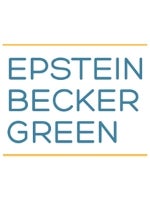Advisers and financial institutions that are compensated based on a fixed percentage of the value of assets under management may want to reconsider that compensation methodology as it could require compliance with a prohibited transaction exemption, such as the Best Interests Contract Exemption (the “BIC Exemption”), which is a component of the fiduciary rule issued by the Department of Labor (the “DOL”) in April 2016 (the “Final Rule”). While stating in the recently published “Conflict of Interest FAQs” (the “FAQs”) that the ongoing receipt of a fixed percentage of the value of a customer’s assets under management, where such values are determined by readily available independent sources, typically does not require compliance with a prohibited transaction exemption, the DOL cautions that such compensation may still raise conflict of interest concerns and require that the adviser comply with a prohibited transaction exemption. The FAQs, like the Final Rule, are generally limited to advice concerning investments in employee benefit plans covered by the Employee Retirement Income Security Act of 1974, as amended (“ERISA”), individual retirement accounts (“IRAs”) and certain other plans.
By way of example, the DOL reiterates the view set forth in the Final Rule that there is a conflict of interest when an adviser recommends that a retirement investor roll retirement savings out of a plan into a fee-based account that will generate on-going fees for the adviser that he would not otherwise receive, even if the fees do not vary based on assets recommended or invested. The DOL guidance also states that investment advice to switch from a commission-based account to an account that charges a fixed percentage of assets under management on an on-going basis could be a prohibited transaction. For purposes of the BIC Exemption, a retirement investor is generally a participant in a plan subject to ERISA or the owner of an IRA. Under the BIC Exemption:
-
an “adviser” is an individual who:
-
is a fiduciary of a plan or an IRA by providing investment advice for a fee and an employee, independent contractor, agent, or registered representative of a financial institution; and
-
satisfies applicable federal and state regulatory and licensing requirements with respect to the covered transaction.
-
-
a “financial institution” is an entity that employs the adviser or retains him in another capacity and that is:
-
registered as an investment adviser under the Investment Advisers Act of 1940, as amended;
-
a bank or similar financial institution;
-
an insurance company that satisfies certain criteria;
-
a broker or dealer registered under the Securities Exchange Act of 1934, as amended; or
-
an entity that the DOL, in a prohibited transaction exemption granted after April 6, 2016, determines is a financial institution.
-
Because the types of prohibited transactions described above are relatively discrete and the adviser’s provision of subsequent advice generally does not involve a prohibited transaction, the DOL states in the FAQs that advisers and financial institutions need only comply with the streamlined conditions in the BIC Exemption to cover the discrete advice that requires the exemption. Per question 13 of the FAQs, the streamlined conditions applicable to level-fee fiduciaries include:
-
a requirement that the financial institution provide a written acknowledgement of its and its advisers’ fiduciary status to the retirement investor; and
-
satisfaction by the financial institution and its advisers of the impartial conduct standards with documentation showing the reasons why the advice was considered to be in the best interest of the retirement investor. The impartial conduct standards require fiduciaries to act in the best interest of their clients, charge no more than reasonable compensation and make no misleading statements.
These streamlined conditions apply to “level-fee fiduciaries” who will receive only a “level fee” in connection with advisory or investment management services provided to a plan or an IRA. As discussed in the FAQs, a level fee is a fee or compensation that is provided on the basis of a fixed percentage of the value of the assets or a set fee that does not vary with the particular investment.
The DOL also states that, after an adviser recommends a rollover to a plan participant, the receipt of level-fee compensation does not violate ERISA’s prohibited transaction rules or require compliance with an exemption.
However, the DOL warns that certain abusive practices could result in a self-dealing prohibited transaction, for which no exemption is available. The DOL supports this position by citing the October 2013 “Report on Conflicts of Interest” of the Financial Industry Regulatory Authority, which describes various circumstances in which advisers may make inappropriate recommendations intended to promote the advisers’ compensation at the expense of the investors. For example, recommending a fee-based account to a retirement investor with low trading activity and little need for on-going monitoring or advice would be considered abusive conduct, as such advice would be designed to enhance the adviser’s compensation at the expenses of the investor.
In summary, to mitigate the risk of having to comply with certain provisions of the BIC Exemption or of engaging in a non-exempt self-dealing prohibited transaction, advisers and financial institutions should consider designing compensation programs that are not based on the value of plan assets under management. Alternatively, if assets under management is key component of an adviser’s compensation plan, then the adviser and financial institution should be certain that they comply with the streamlined conditions of the BIC Exemption.




 />i
/>i

